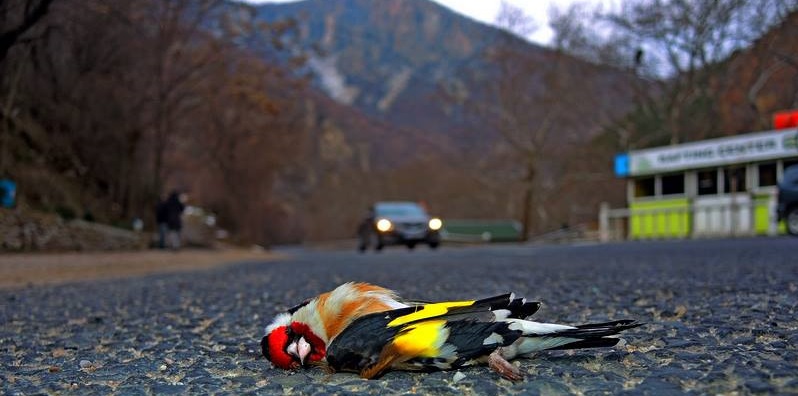Case to the European Ombudsman calls out Commission for failing to protect Bulgaria’s biodiversity
Brussels / Sofia – the European Commission has been accused of failing to monitor how EU funds are being spent in Bulgaria, according to a complaint [1] filed to the European Ombudsman over the Commission’s handling of a motorway project that threatens a protected Natura 2000 site.
31 January 2019

The “Save Kresna gorge” coalition of Bulgarian environmental groups and CEE Bankwatch Network have petitioned the Ombudsman to end the prolonged maladministration by the Commission of EUR 610 million in EU Cohesion funds that the Bulgarian government intends to spend on the Struma motorway planned in the country’s richest area of biodiversity.
The 16 kilometre section of the Kresna gorge where the Struma motorway project is planned is the most biodiverse region in Bulgaria, home to 92 protected species, and part of the EU’s Natura 2000 network of protected areas. More butterfly species live on one square kilometre of the Kresna gorge than in all of the UK. Since construction of the motorway started in 2011, the traffic through the Kresna gorge has caused severe decline of the populations of protected bats, turtles and snakes.
In 2013 the Commission conditioned funding of the Struma motorway on “avoiding the environmentally sensitive Kresna Gorge”, a prerequisite for further financing of other parts of the motorway. But insufficient oversight of Bulgaria by the Commission has allowed the project to proceed in spite of violations to the EU’s Habitats Directive, the Environmental Impact Assessment Directive, and international conventions.
The “Save Kresna gorge” coalition has repeatedly alerted the Commission of these developments with the project [2], and has even developed alternative routings that would preserve the gorge , but construction of the motorway continues in spite of the well-documented risks to the gorge.
The complainants are asking the Ombudsman to ensure that the Commission executes its duty to prevent the deterioration of the Natura 2000 site.
Daniel Popov of the “Save Kresna gorge” coalition said:
“Any attempt of this kind should be stopped and the government sanctioned. In addition to destroying a valuable natural site of European importance, the motorway erodes the role of the European Commission as the guardian of the EU’s founding principles, provoking the already-widespread Euroscepticism in Bulgaria.”
Anelia Stefanova, Program Director at CEE Bankwatch Network, said:
“The EU has some of the strongest laws on biodiversity protection but still, in the EU, only 17 per cent of habitats and species and 11 per cent of key ecosystems protected under the EU legislation are in a favourable state. This means that no further biodiversity loss can be tolerated, especially when EU money is at stake. The Commission body on Regional Policy should change how it manages the project to ensure EU funding is a tool for implementing EU law.”
Contacts:
Desislava Stoyanova
+359888714688
Za Zemiata, Friends of Earth Bulgaria / CEE Bankwatch Bulgaria
Anelia Stefanova
anelias AT bankwatch.org
+393338092492
CEE Bankwatch Network
Notes
[1] https://bankwatch.org/publication/eu-funds-maladministration-complaint-to-the-european-ombudsman
[2] See for instance https://bankwatch.org/press_release/legal-complaint-lodged-to-save-protected-bulgarian-gorge-from-destructive-motorway and https://bankwatch.org/blog/bulgaria-s-struma-motorway-becomes-test-case-for-european-commission-s-commitment-to-eu-nature-protection-law
Never miss an update
We expose the risks of international public finance and bring critical updates from the ground – straight to your inbox.
